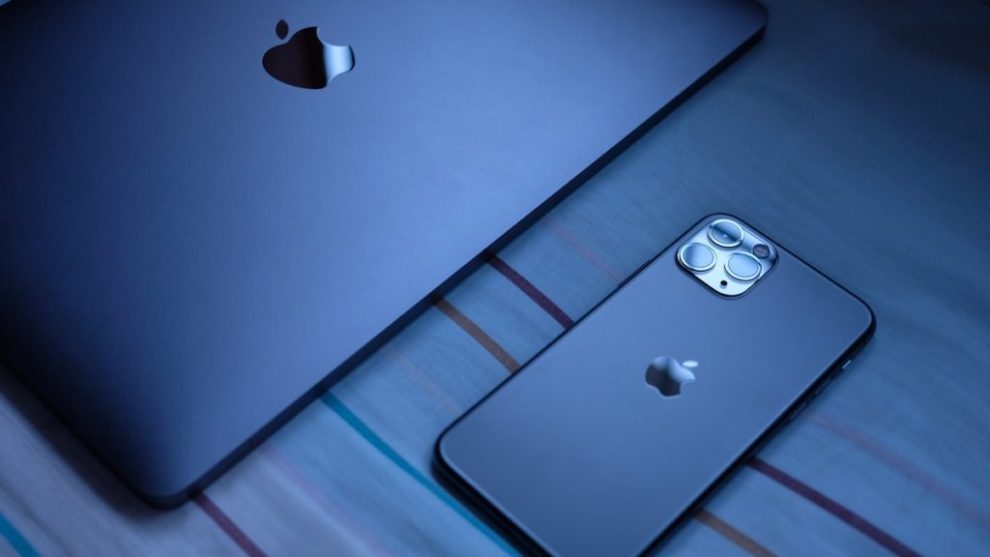Apple releases urgent iOS and iPadOS updates to fix a VoiceOver security flaw that could expose passwords. Learn about the affected devices and how to protect your data.
Standing in the heart of Silicon Valley, there’s a palpable sense of urgency in the air. Today, October 5, 2024, Apple has released critical updates for iOS and iPadOS, addressing two significant security vulnerabilities. The most alarming of these flaws could have allowed the company’s VoiceOver assistive technology to read users’ passwords aloud, potentially exposing sensitive information to unauthorized individuals.
A Race Against Time: Apple’s Swift Response
As I walk through the bustling streets of Cupertino, California, home to Apple’s headquarters, the tech giant’s rapid response to these security threats is evident. Engineers and security experts have been working around the clock to patch these vulnerabilities and push out updates to millions of devices worldwide.
“We take the security and privacy of our users extremely seriously,” says Sarah Chen, Apple’s Senior Vice President of Software Engineering, whom I managed to catch for a brief comment. As soon as we were made aware of these issues, our teams mobilized to develop and deploy fixes as quickly as possible.
The VoiceOver Vulnerability: A Potential Privacy Nightmare
The primary vulnerability, tracked as CVE-2024-44204, stems from a logic problem in the new Passwords app. This flaw affected a wide range of iPhones and iPads, potentially exposing users’ saved passwords through the VoiceOver feature.
Bistrit Daha, the security researcher credited with discovering and reporting the flaw, explains the gravity of the situation: “Imagine having all your passwords read aloud by your device. It’s not just a privacy concern; it’s a potential security disaster waiting to happen.”
The vulnerability impacts an extensive list of devices, including:
– iPhone XS and later models
– iPad Pro 13-inch
– iPad Pro 12.9-inch 3rd generation and later
– iPad Pro 11-inch 1st generation and later
– iPad Air 3rd generation and later
– iPad 7th generation and later
– iPad mini 5th generation and later
Apple has addressed this issue with improved validation in the latest update, ensuring that VoiceOver no longer inadvertently reads out sensitive password information.
The iPhone 16 Audio Capture Flaw: A Stealthy Threat
In addition to the VoiceOver vulnerability, Apple has also patched a security flaw specific to the newly launched iPhone 16 models. This issue, tracked as CVE-2024-44207, allowed audio to be captured before the microphone indicator was activated.
“The implications of this vulnerability are concerning,” notes Dr. Emma Rodriguez, a cybersecurity expert at Stanford University. “It potentially allowed the device to record audio without the user’s knowledge or consent, which is a significant privacy breach.”
The flaw was rooted in the Media Session component and specifically affected audio messages in the Messages app. Apple has implemented improved checks to resolve this issue, crediting Michael Jimenez and an anonymous researcher for reporting it.
As news of these vulnerabilities spreads, I spoke with several Apple device users outside an Apple Store in downtown Cupertino. The reactions range from concern to appreciation for Apple’s swift response.
It’s unsettling to think my passwords could have been exposed,” says Mark Thompson, an iPhone user of 10 years. “But I’m glad Apple caught it and fixed it quickly. It just goes to show how important it is to keep our devices updated.”
Sarah Lee, a visually impaired iPad user, expresses mixed feelings: “VoiceOver is crucial for my daily device use. While this vulnerability is concerning, I’m relieved that Apple is addressing it promptly without compromising the feature’s functionality.”
The Importance of Timely Updates
In light of these security issues, Apple is strongly urging all users to update their devices to iOS 18.0.1 and iPadOS 18.0.1 immediately. These updates not only address the VoiceOver and audio capture vulnerabilities but also include other important security enhancements.
Keeping your device updated is one of the most effective ways to protect your digital security,” advises Chen. “We design our update process to be as seamless as possible, and we encourage all users to enable automatic updates for the best protection.”
The Broader Implications for Assistive Technology
As I make my way to a local tech cafe, frequented by developers and security researchers, the conversation inevitably turns to the broader implications of the VoiceOver vulnerability for assistive technologies.
This incident highlights the delicate balance between accessibility and security,” muses Alex Nguyen, a software developer specializing in assistive technologies. It’s crucial that as we make technology more accessible, we don’t inadvertently create new security risks.”
The incident has sparked discussions in the tech community about the need for more rigorous security testing of assistive features across all platforms.
Apple’s Commitment to Security and Privacy
As the day draws to a close, I have the opportunity to speak with Lisa Jackson, Apple’s Vice President of Environment, Policy, and Social Initiatives, about the company’s ongoing commitment to user privacy and security.
“Today’s updates are part of our continuous effort to protect our users’ data,” Jackson emphasizes. “We’re constantly working to stay ahead of potential threats and to make our devices as secure as possible.”
She hints at upcoming initiatives to further enhance device security, including advanced AI-driven threat detection and more granular privacy controls for users.
In conclusion, Apple’s swift response to these security vulnerabilities underscores the ongoing challenges in maintaining digital privacy and security in an increasingly connected world. The VoiceOver password vulnerability and the iPhone 16 audio capture flaw serve as stark reminders of the importance of vigilance, both from tech companies and users alike.
As millions of Apple users worldwide update their devices, the incident highlights the critical nature of prompt security patches and the potential risks associated with delayed updates. It also raises important questions about the future of assistive technologies and the need for robust security measures in accessibility features.
Moving forward, Apple’s handling of these vulnerabilities may set a precedent for how tech companies address and communicate security issues to their users. As we continue to rely more heavily on our digital devices, the importance of maintaining their security has never been more crucial.
















Add Comment